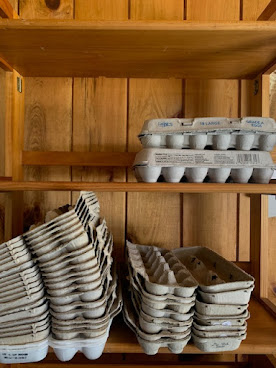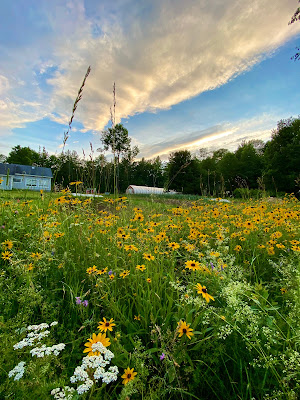How will Climate Change impact Small Farms?
In a time where weather patterns are becoming less predictable, large-scale floods are plaguing different parts of the globe, hundreds of plant and animal species are going extinct, it's hard to deny that we are amidst an Environmental, Climate Crisis. While global warming impacts, or will impact EVERYONE in some way, its impact is most severe amongst the poor, ethnic minorities, and smaller institutions.
Unfortunately, small farms like CCF will be hit pretty badly by the Climate Crisis. With inconsistent weather patterns during the growing season it will become more difficult to cultivate anything outdoors. With long periods of soaking rain, the crops won’t be able to take root and stay in the ground. With the loss of biodiversity in the Adirondacks, we may lose our pollinators, earthworms and other crucial organisms that our gardens rely on.
And that's not all. There will be more droughts that hurt our gardens. Over the past two growing seasons we have seen several drought-like stretches with temperatures soaring well above average for long periods of time, and with no precipitation. With more weather patterns like this, there will be more weeds that thrive off of the extra CO2 in our atmosphere. It will be more challenging to sow seeds, and will take longer to produce the quality and quantity of produce that we are so accustomed to during the summer months.
Obviously, we are preparing for the worst in apprehension for the worsening of the Climate Crisis. In this way, it is important that you, as the consumer, continue to support CCF. Your support as shareholders at CCF fuels our “plan” for the future, and helps us navigate ways to continue producing the best produce that we can, even in the face of adversity.
To combat the Climate Crisis we all have to look at ourselves and our own practices. We need to be cognizant of how much we drive, our yearly consumption, how we dispose of our waste, and so much more. As CCF supporters, you are supporting our efforts to operate as sustainably as possible, and to make everyday decisions that are in harmony with our natural environment. We believe it's these small everyday steps (steps taken by all of us!) that can lead to bigger positives for our environment and its people.
Thanks for reading,
Love. CCF
Unfortunately, small farms like CCF will be hit pretty badly by the Climate Crisis. With inconsistent weather patterns during the growing season it will become more difficult to cultivate anything outdoors. With long periods of soaking rain, the crops won’t be able to take root and stay in the ground. With the loss of biodiversity in the Adirondacks, we may lose our pollinators, earthworms and other crucial organisms that our gardens rely on.
And that's not all. There will be more droughts that hurt our gardens. Over the past two growing seasons we have seen several drought-like stretches with temperatures soaring well above average for long periods of time, and with no precipitation. With more weather patterns like this, there will be more weeds that thrive off of the extra CO2 in our atmosphere. It will be more challenging to sow seeds, and will take longer to produce the quality and quantity of produce that we are so accustomed to during the summer months.
Obviously, we are preparing for the worst in apprehension for the worsening of the Climate Crisis. In this way, it is important that you, as the consumer, continue to support CCF. Your support as shareholders at CCF fuels our “plan” for the future, and helps us navigate ways to continue producing the best produce that we can, even in the face of adversity.
To combat the Climate Crisis we all have to look at ourselves and our own practices. We need to be cognizant of how much we drive, our yearly consumption, how we dispose of our waste, and so much more. As CCF supporters, you are supporting our efforts to operate as sustainably as possible, and to make everyday decisions that are in harmony with our natural environment. We believe it's these small everyday steps (steps taken by all of us!) that can lead to bigger positives for our environment and its people.
Thanks for reading,
Love. CCF


Comments
Post a Comment